CORE ECU – Standalone vs. OE Engine Management
Published on: October 1, 2024Categories: Education
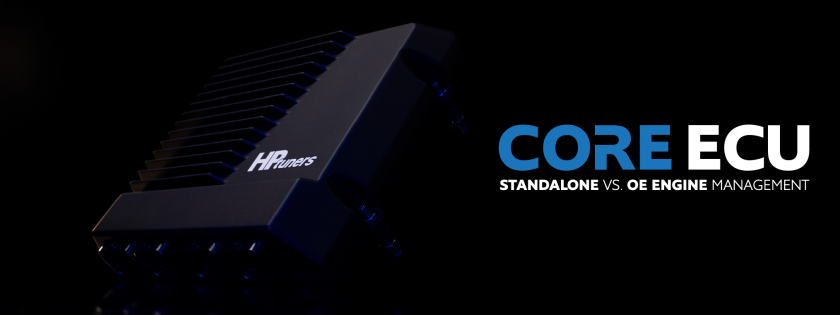
When tuning your vehicle for performance, one of the most important decisions is choosing between using the factory OE (Original Equipment) engine management system or upgrading to a standalone ECU like HP Tuners’ CORE ECU. Both options have their place, but understanding the strengths and limitations of each will help you decide what’s best for your build.
This article will explain the key differences between standalone and OE engine management systems and why you might want to consider upgrading to CORE ECU for your high-performance needs.
Key Points:
– What is OE Engine Management?
– What is a Standalone ECU?
– Key Differences
– When Should You Consider a Standalone?
– Solutions from HP Tuners
– Final Thoughts
What is OE Engine Management?
OE engine management systems, or factory ECUs, are installed by manufacturers to run the vehicle in a way that meets emissions standards, ensures reliability, and caters to a broad range of driving conditions. They’re highly optimized for fuel economy, emissions control, and engine protection, but they come with some significant limitations, especially for enthusiasts and tuners looking for more control over their vehicle’s performance.
While OE systems can be tuned with tools like HP Tuners’ MPVI3 and VCM Suite, there are still limitations to what can be tuned based on the capabilities of the factory computer. When you’re building a racecar, you need complete control and that’s where a standalone system is inherently better. Learn more about tuning factory ECUs with the MPVI3 and VCM Suite, which offer powerful tools for customizing factory ECUs.
What is a Standalone ECU?
A standalone ECU is a fully customizable engine management system that allows tuners to adjust virtually every parameter that controls the engine’s operation. Standalone systems like the HP Tuners CORE ECU are not bound by the constraints of factory settings, offering complete control over aspects like fuel delivery, ignition timing, boost control, and more.
Standalone ECUs are ideal for heavily modified engines, motorsports applications, and vehicles where performance and precision tuning are the main objectives. These systems are designed to maximize power and performance, even in extreme environments.
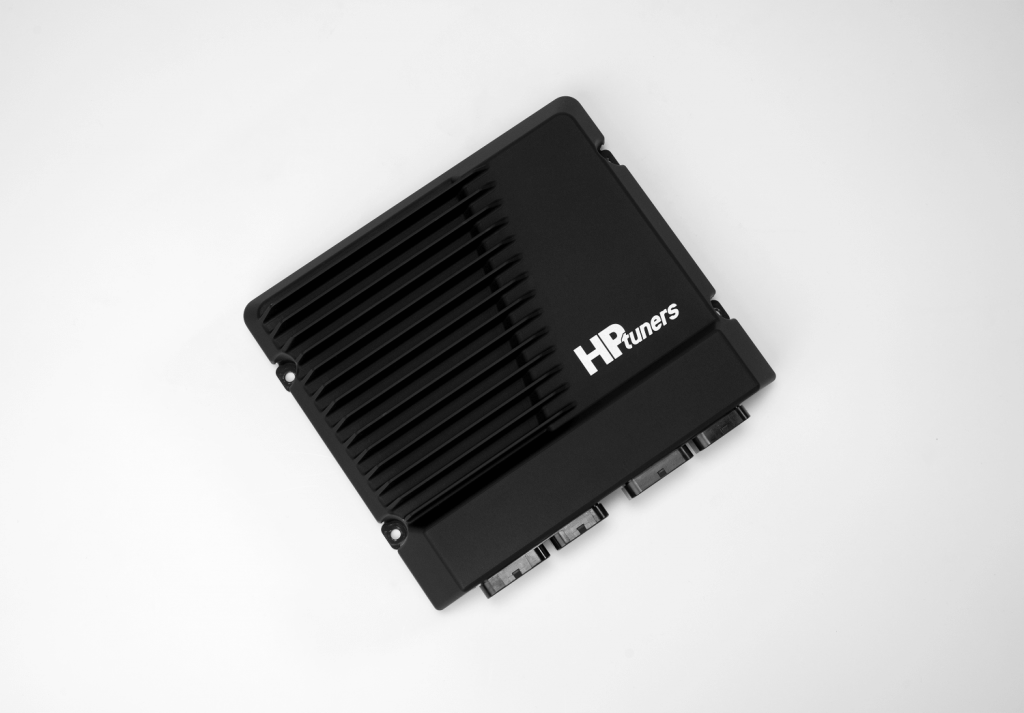
Key Differences: Standalone vs. OE Engine Mangement
1. Flexibility and Control
- OE Systems: Factory ECUs are typically locked down to meet emissions standards and protect the engine from damage during normal driving conditions. While you can tune OE systems using tools like MPVI3 and VCM Suite, you’re often working within the limitations imposed by the manufacturer, with limited access to certain critical parameters.
- Standalone ECUs: CORE ECU offers full control over all engine parameters, allowing tuners to completely customize how the engine performs. Whether you’re building a race car, drifting vehicle, or resto-mod, CORE ECU gives you the power to optimize every aspect of engine performance.
2. Compatibility with Modifications
- OE Systems: When you modify your engine—adding forced induction, upgrading fuel systems, or changing the camshaft profile—the factory ECU may struggle to handle these new components without extensive tuning. With MPVI3 and VCM Suite, this is possible, however you may experience limitations within the factory ECU’s capabilities.
- Standalone ECUs: CORE ECU is designed for modified engines. It offers support for features like up to 16 injectors, 8 coil packs, dual throttle bodies, and built-in wideband controllers, making it perfect for vehicles that have been heavily modified. The ECU allows you to dial in the ideal settings for your custom setup, ensuring you get the most out of your performance upgrades.
3. Data Logging and Real-Time Tuning
- OE Systems: While OE systems can be tuned, real-time tuning is not always available, and data logging may be limited in terms of the number of channels or resolution.
- Standalone ECUs: CORE ECU, paired with VCM Live software, allows for real-time tuning, where changes can be made on the fly without having to shut down the engine. It also offers data logging at 1 kHz across 150 channels, providing tuners with a wealth of information to fine-tune the engine with precision.
4. Boost Control and Advanced Features
- OE Systems: While OE ECUs can support basic boost control through tuning, they lack the sophisticated boost control strategies offered by standalone ECUs. Factory systems may not handle high-boost or high-power applications well, especially when operating outside of factory specifications.
- Standalone ECUs: CORE ECU excels in advanced features like open- and closed-loop boost control, traction control, and real-time air-fuel ratio adjustments. These features are crucial for high-performance or forced induction builds and can be fully tuned within VCM Live for maximum power and reliability.
5. Cost and Complexity
- OE Systems: Using the factory ECU is typically more cost-effective since you’re working with existing hardware, and tools like HP Tuners’ MPVI3 allow you to custom tune a wide variety of vehicles. For daily drivers with mild modifications, an OE ECU with tuning support may be all you need.
- Standalone ECUs: CORE ECU comes with a higher initial cost, but it provides unmatched customization and control for serious builds. If you’re doing a complete engine swap, working on a high-powered forced induction setup, or building a race car, a standalone system is often worth the investment.
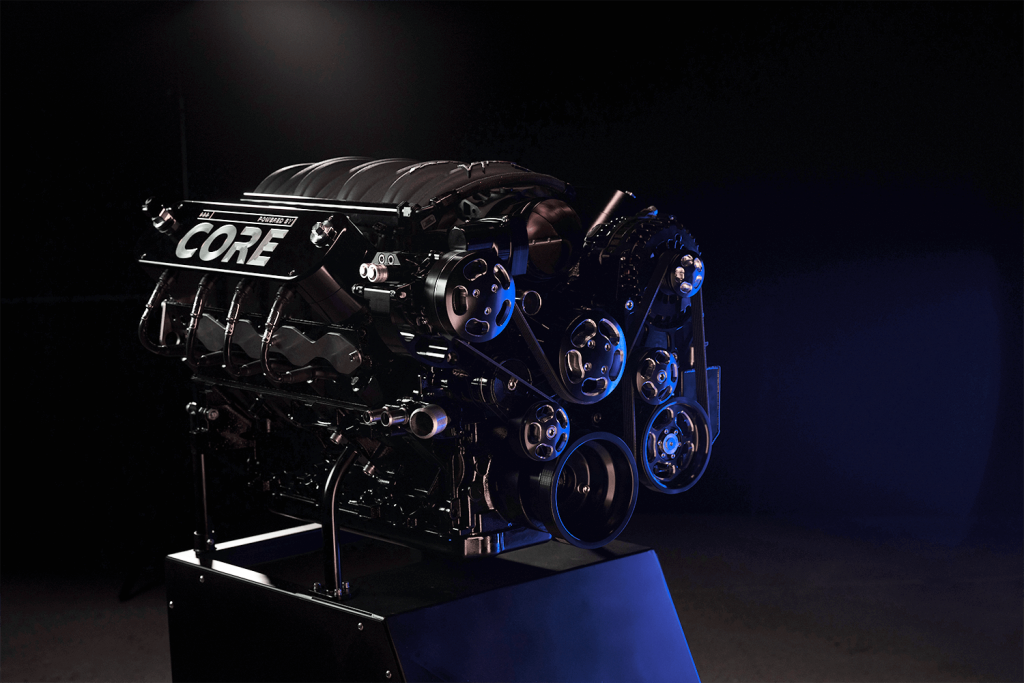
When Should You Consider CORE ECU?
While OE engine management systems work well for stock or mildly modified vehicles, there are certain situations where switching to a standalone ECU like CORE ECU is the better option:
- Heavily Modified Engines: If your engine has undergone significant modifications, including forced induction, displacement increases, high-compression pistons, or camshaft upgrades, CORE ECU provides the flexibility to tune these components properly.
- Motorsports Applications: For drag racing, drifting, or other forms of competitive motorsports, you need a system that can handle the extreme demands of high-performance tuning. CORE ECU’s real-time tuning and data logging make it an ideal choice for professional racers and tuners.
- Engine Swaps: If you’re swapping engines in a vehicle, especially if it’s from a different platform, CORE ECU can help manage the new setup with ease, allowing for full integration and control of the engine.
CORE ECU and OE Tuning Solutions from HP Tuners
At HP Tuners, we understand that not every build requires a standalone ECU. That’s why we offer a complete range of tuning solutions for both OE ECUs and standalone systems.
- MPVI3 + VCM Suite: For those working with factory ECUs, our MPVI3 interface and VCM Suite software allow you to upgrade, tune, and monitor a wide variety of vehicles, giving you the flexibility to extract more performance while keeping your OE system intact.
- CORE ECU: For builders who need full control and customization, CORE ECU offers a powerful, standalone option that integrates seamlessly with VCM Live, providing the ultimate tuning experience.
Watch CORE ECU in Action
Want to see the CORE ECU in action? Check out our videos on YouTube for more information:
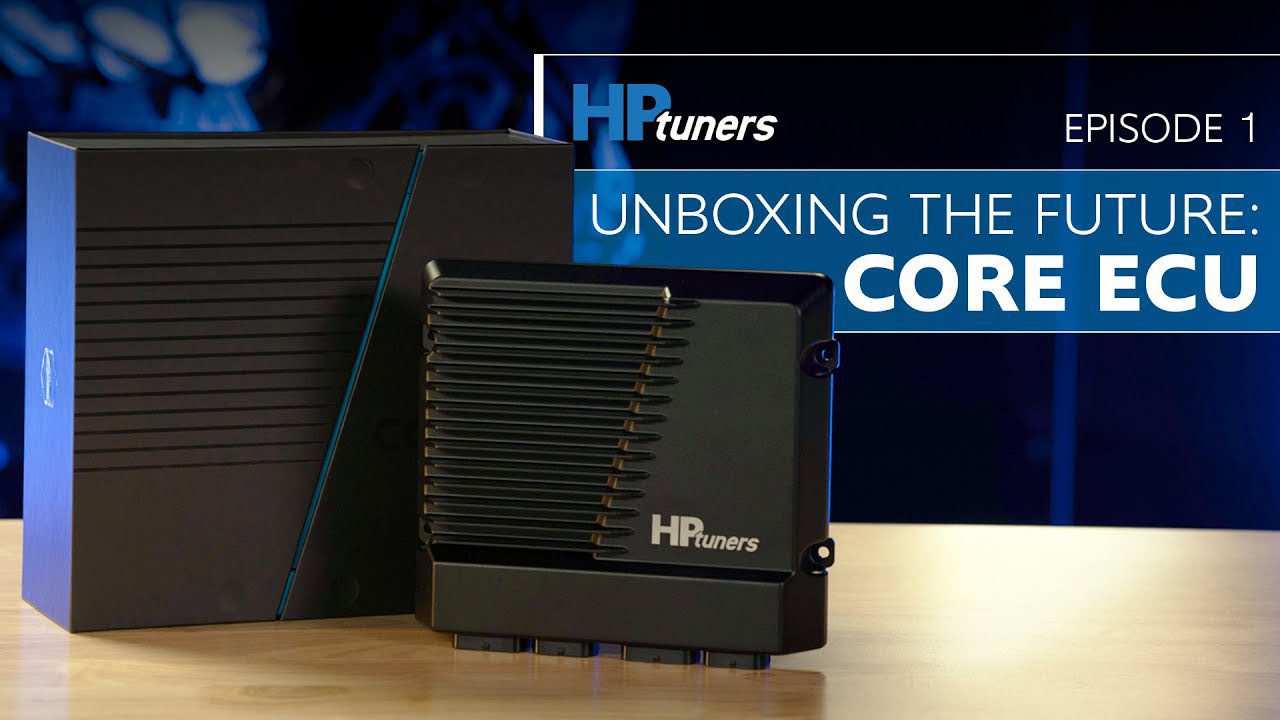
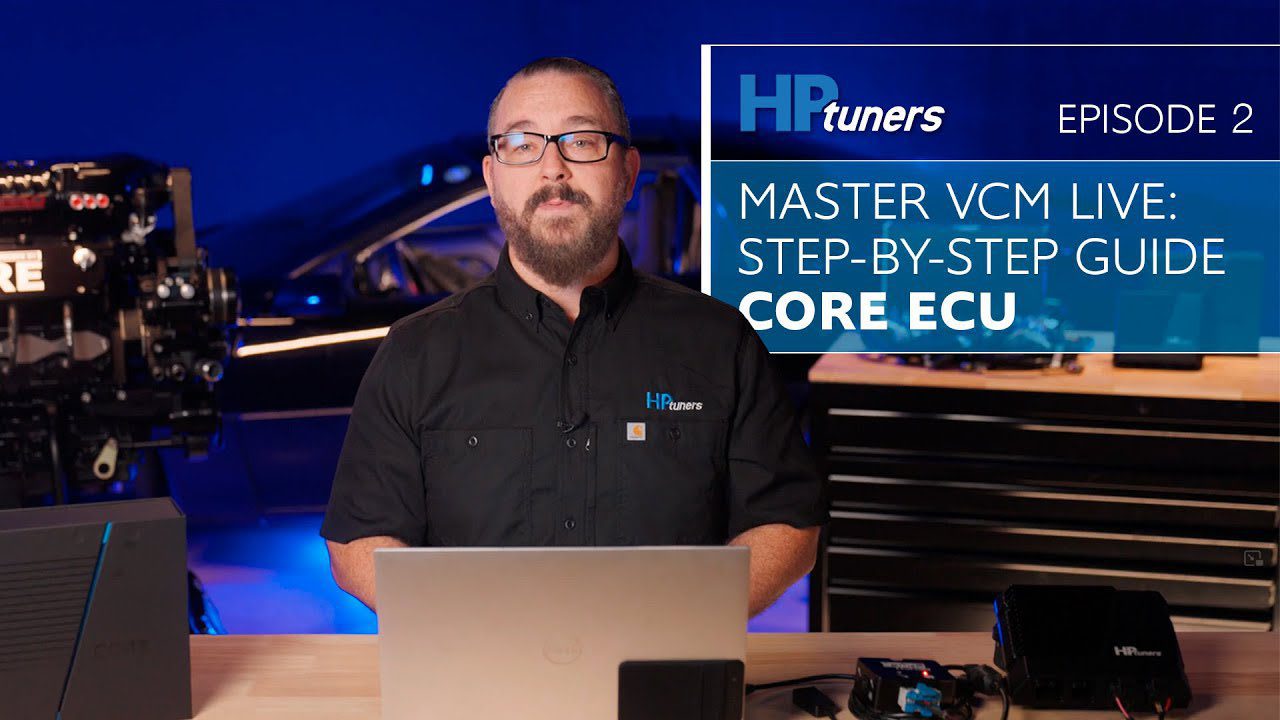
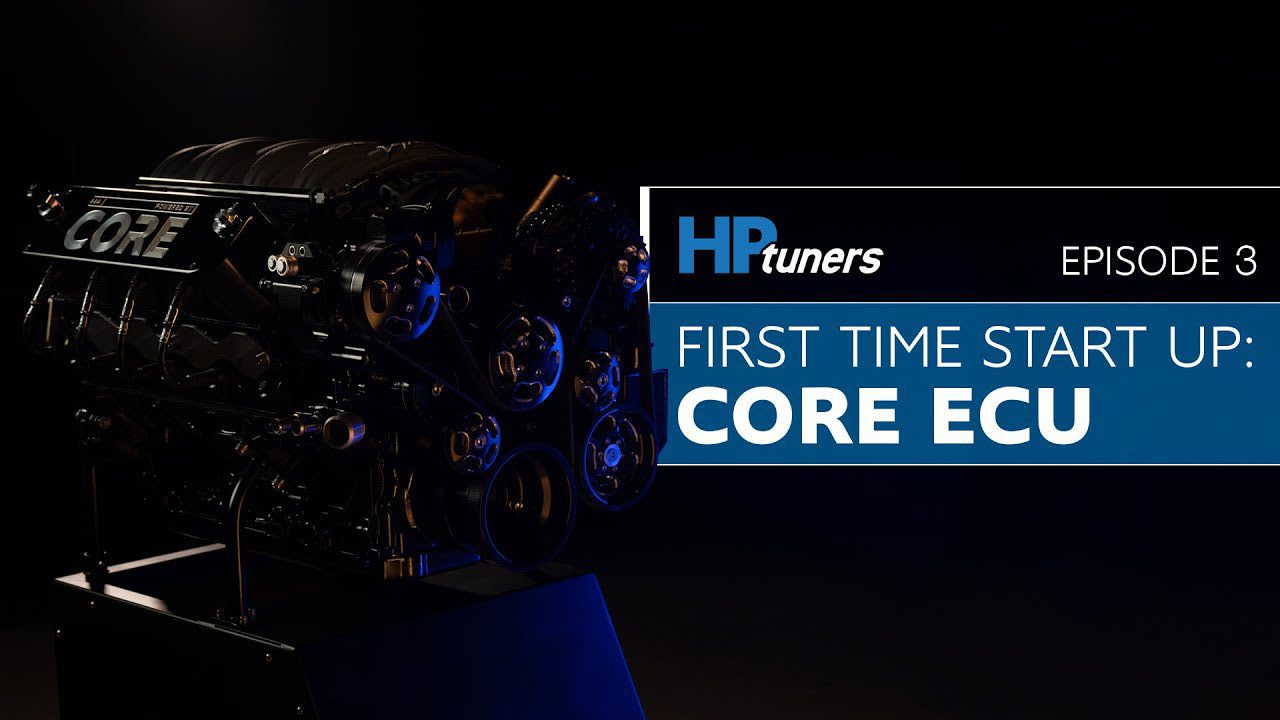
Conclusion
Choosing between a standalone ECU and an OE engine management system depends on your goals and the level of control you need. For daily drivers or lightly modified cars, sticking with the factory ECU and using HP Tuners’ MPVI3 and VCM Suite may be the most practical solution. But if you’re serious about performance and need the ability to tune every aspect of your engine, CORE ECU and VCM Live is the clear choice for track-oriented and off-road vehicles.
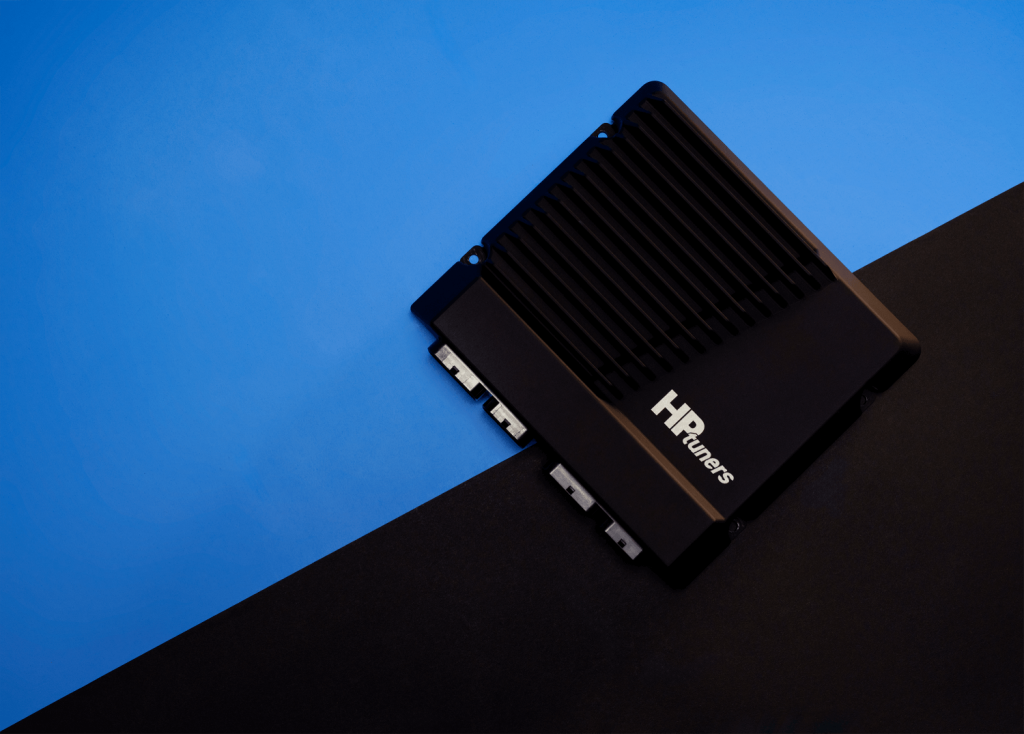
Get Started with CORE ECU
- Check out HP Tuners’ educational video series to explore in-depth guides on CORE ECU setup, configuration, and more.
- Visit HP Tuners’ website to learn more about CORE ECU and its compatibility with your engine.
- Download VCM Live software to start tuning and logging data in real time.
Emissions Statement
CORE ECU is intended for use in exempt vehicles such as pre-emissions motor vehicles and documented competition vehicles that are exclusively for track use and not driven on public roads. HP Tuners does not condone the misuse of its products. All users are required to register their CORE ECU and identify the vehicle application before installation and use. Misuse of the CORE ECU will void the warranty.


